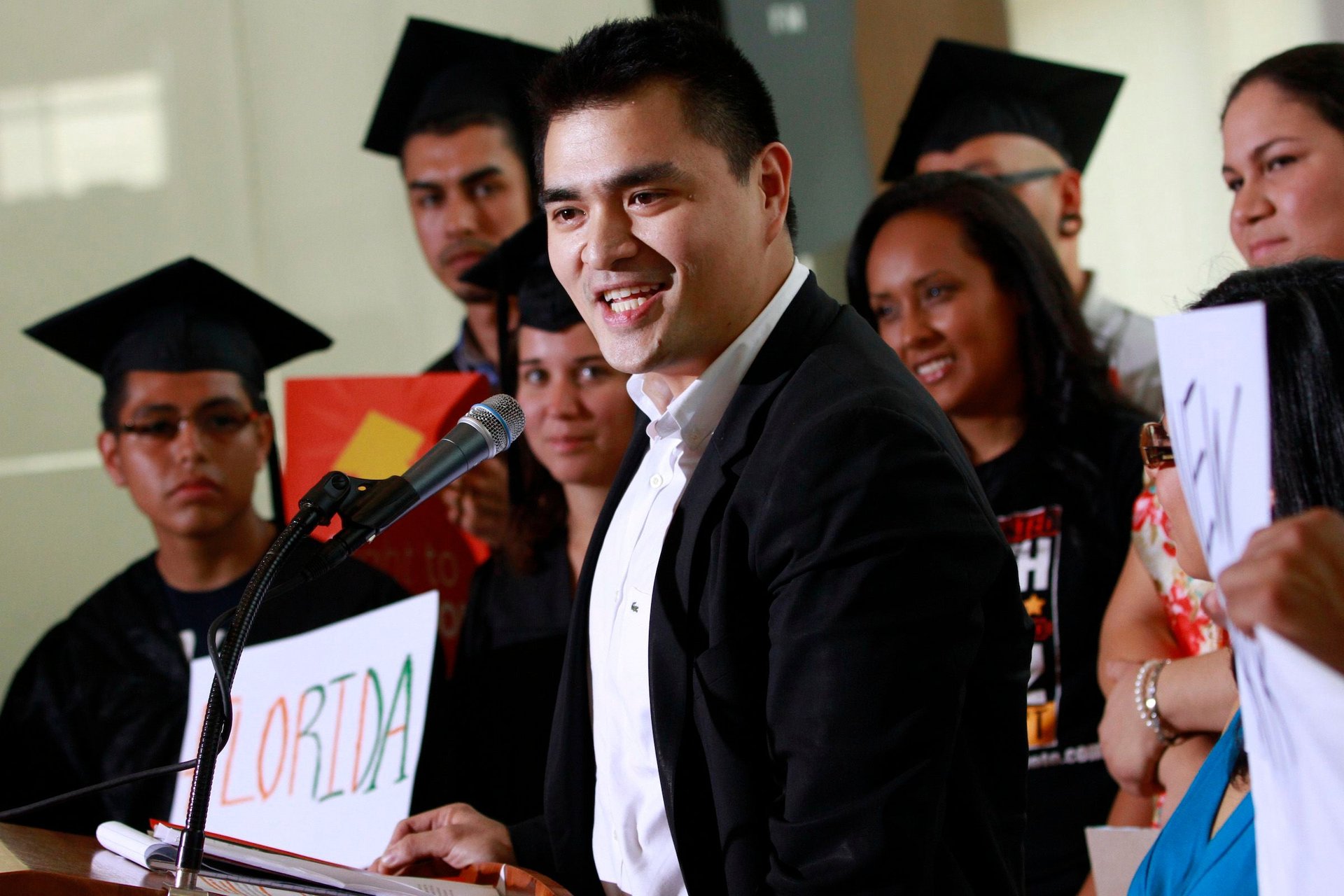Jose Antonio Vargas has become the poster-adult for America’s child migrant problem
This post has been updated with a response from the US Department of Homeland Security after Vargas was released on the evening of July 15.


This post has been updated with a response from the US Department of Homeland Security after Vargas was released on the evening of July 15.
In the midst of a controversy over the tens of thousands of unaccompanied children that are fleeing Central American countries and trekking to the US border, Jose Antonio Vargas, one of the country’s most visible immigration reform advocates, traveled to a Texas border town to add his voice the cause. But while trying to catch a flight from there to Los Angeles, Vargas was detained by border patrol officials at McAllen-Miller International Airport, advocates report.
Vargas had travelled to the border town to join a vigil to highlight the stories of the refugee children escaping gang violence in Central America, organized by the immigrant youth-led organization United We Dream. He had also planned to interview the children, some of whom are being held at a shelter in the border town. His arrest has already served to amplify his protest, as advocates for immigration reform have protested, calling Border Patrol a “rogue agency.”
Update: The Department of Homeland Security sent Quartz the following statement at 6:30pm on July 15:
U.S. Customs and Border Protection Border Patrol Agents operating at McAllen-Miller International Airport encountered Mr. Vargas and apprehended him after he stated that he was in the country illegally. Mr. Vargas was transported to the McAllen Border Patrol Station where he was processed and provided with a Notice to Appear before an immigration judge. He was released on his own recognizance after consultation with Immigration and Customs Enforcement (ICE).
Mr. Vargas has not previously been arrested by ICE nor has the agency ever issued a detainer on him or encountered him. ICE is focused on smart, effective immigration enforcement that prioritizes the agency’s resources to promote border security and to identify and remove criminal individuals who pose a threat to public safety and national security.
Vargas, a Filipino who was sent to the United States by his family when he was 12 and went on to become a Pulitzer-prize-winning journalist for the Washington Post and the New York Times, revealed his own undocumented status in a New York Times essay, and is promoting his recent film on undocumented immigrants, which aired on CNN. He co-founded the advocacy group Define American, and is known for his immigration activism.
Vargas told the New York Times (paywall) that he has been traveling freely around the country and had not expected to be stopped in Texas. It was only after he arrived in the border town that he realized he would have to go though an immigration checkpoint to fly out of it, he wrote in an essay for Politico. In a keynote speech for a journalism awards ceremony in New York this past June, he said: ”It’s really weird—this country won’t seem to want to deport me, but they keep wanting to give me awards. It’s a strange thing.”
He had also been tweeting updates from McAllen before his arrest.
Vargas’ detention is gearing up to be a high-profile event. Members of United We Dream and the community have planned protests demanding Vargas’ immediate release and a press conference about mixed-status families living in fear, using Vargas’ situation and uncertainty to highlight the similar problems faced by child migrants.
“We stand in solidarity with Jose Antonio and demand for his immediate release, but we must remember that there are thousands of people along the border that live with this same fear every day,” said Cristina Jimenez, managing director of United We Dream, in a statement.
An advocate tweeted this picture of Vargas in handcuffs:
The arrest is unlikely to help facilitate president Barack Obama’s request to Congress for $3.7 billion to address the influx of migrants at the Mexican border. Republicans in the House reportedly want to provide only a portion of the money and to revise a bill that made it more difficult to deport child migrants from countries other than Mexico and Canada.